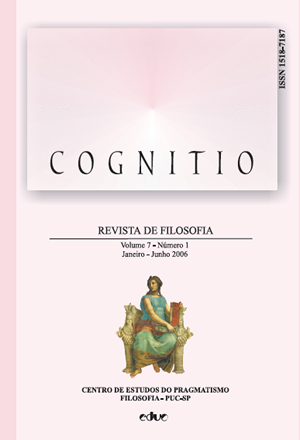Rorty’s neopragmatism
Keywords:
Neopragmatism, Critic of the theory of representation, Justification, Conversation, ObjectivityAbstract
Rorty puts pragmatism in a new and revitalized rout. Inspired by Wittgenstein, Dewey and Heidegger, he criticizes the philosophic tradition centered in representation, showing that it is an obstacle to the “pragmatized culture.” In this kind of culture conversation and justification really matter, and the guide to knowledge is not the mind as mirror of nature, but cultural practices through which it is possible to obtain objective truth. Nevertheless, objective truth is not the central problem, nor the only aim of an epistemological procedure. It is obtained by the application of justification, in the contexts of normal discourse. Instead of asking for a unique algorithm, a solid foundation, we must open philosophy to conversation. The label “relativism” (considered as a danger to truth, to ethics and politics) is not appropriate to characterize Rorty’s thought. Indeed, he contests the relation scheme/content following Davidson. So truth does not depend upon the notion of scheme; idealism and relativism concern the systematic philosophy that claims for definite criteria for knowledge. If knowledge will be considered not as method to obtain truth, but as a part of a process that mostly get better comprehension of ourselves, then philosophy will have the role of auxiliary instrument to the humanity conversation and not of cultural judge. If mind will not be seen as a receptacle of ideas that represent reality, and be seen instead as element that compounds some of our activities, what is understood on basis of certain language games, then we will not need a science to decipher what we are.Metrics
Metrics Loading ...
Downloads
Published
2018-06-30
How to Cite
Araújo, I. L. (2018). Rorty’s neopragmatism. Cognitio: Revista De Filosofia, 7(1), 13–24. Retrieved from https://revistas.pucsp.br/index.php/cognitiofilosofia/article/view/13568
Issue
Section
Cognitio Papers















